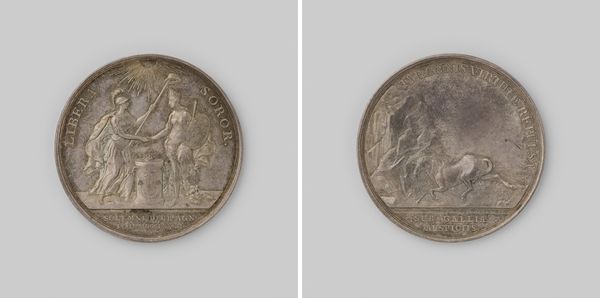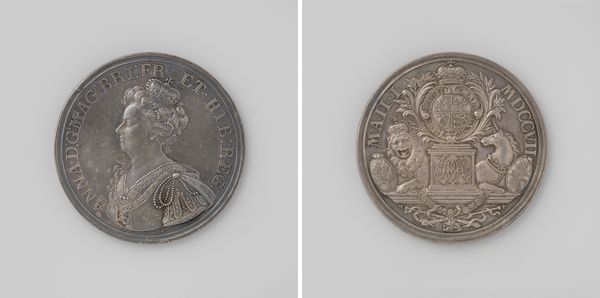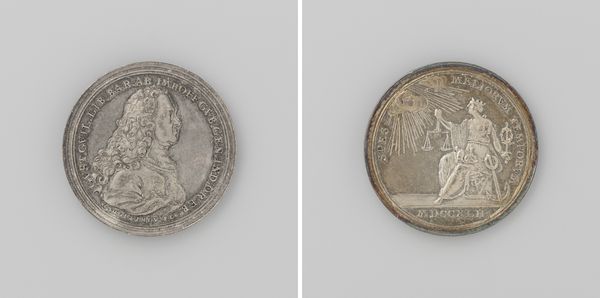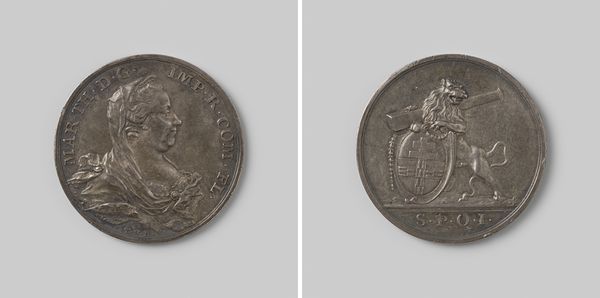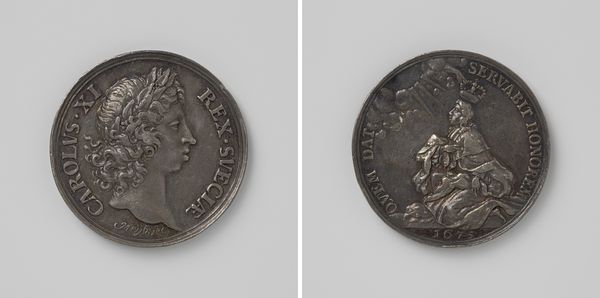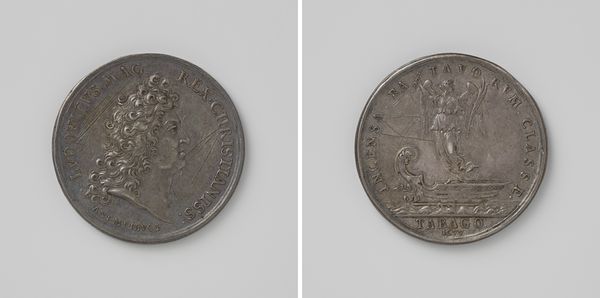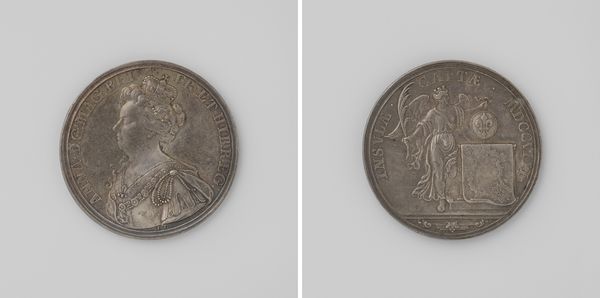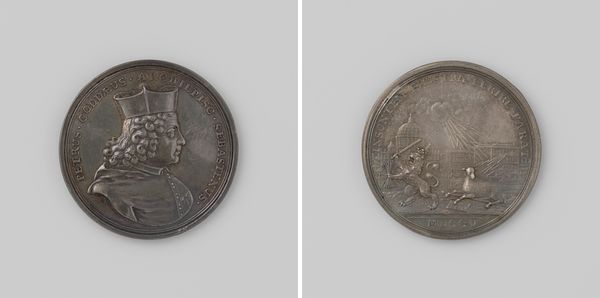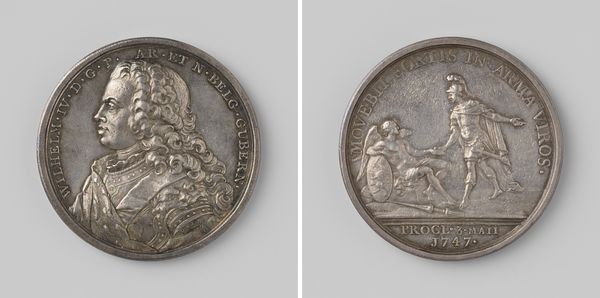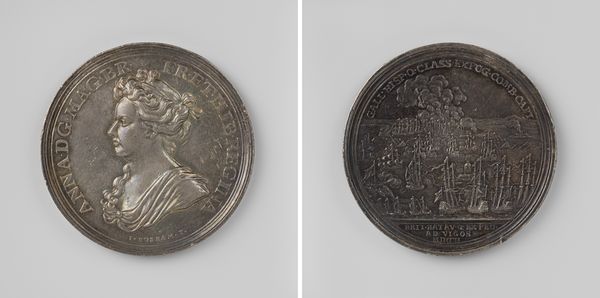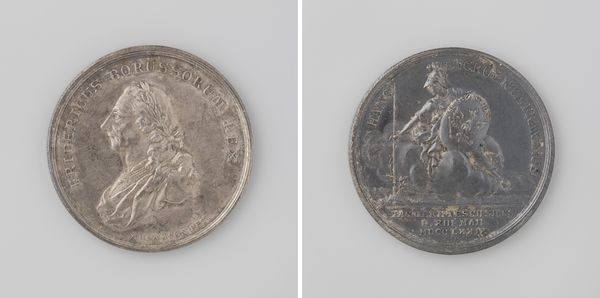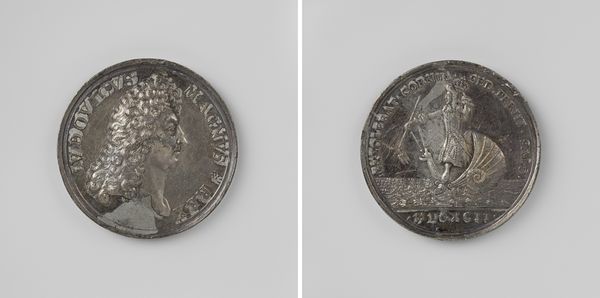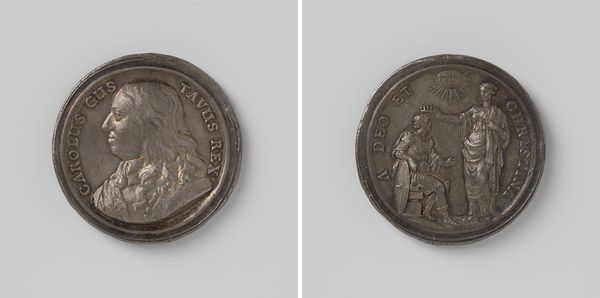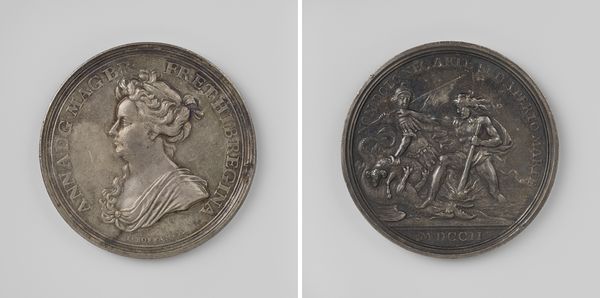
Huwelijk van Maximiliaan II Emanuel, keurvorst van Beieren met Theresa Kunigonde Sobieski, prinses van Polen 1695
0:00
0:00
print, metal, relief
#
portrait
#
baroque
# print
#
metal
#
relief
#
history-painting
Dimensions: diameter 3 cm, weight 9.55 gr
Copyright: Rijks Museum: Open Domain
Curator: Look at this intricate piece! It commemorates the “Marriage of Maximiliaan II Emanuel, Elector of Bavaria, to Theresa Kunigunde Sobieski, Princess of Poland" in 1695. What strikes you most about it? Editor: The solemnity. It feels like a staged theatrical production in miniature. The cool metal and classical motifs convey the political gravitas, even on a coin. Curator: Exactly! This wasn’t just about love; it was high-stakes geopolitics. The conjoined portraits assert power and dynasty. It mirrors contemporary trends where marriage solidified political strategy. Editor: I see how those two profiles blend, but the angel on the reverse--odd to see him with military trophies! Does that symbolize a harmonious union ending conflict? Curator: It’s meant to show Concordia—Harmony—trampling arms. That imagery was common, peace coming from alliance. Editor: So, even what appears classical evokes immediate contemporary events. Metal, especially coins, also served as durable cultural messengers to far-flung places at a crucial moment for trade and colonialism. What story can one small object contain? Curator: These symbols persist—they are touchstones. It reveals continuity of human strategies. Then, just as now. Editor: Indeed, reflecting on its dual purpose and lasting effect has been very revealing about the making and function of historical representation. Curator: And now to apply these observations anew in other displays throughout the museum!
Comments
No comments
Be the first to comment and join the conversation on the ultimate creative platform.
